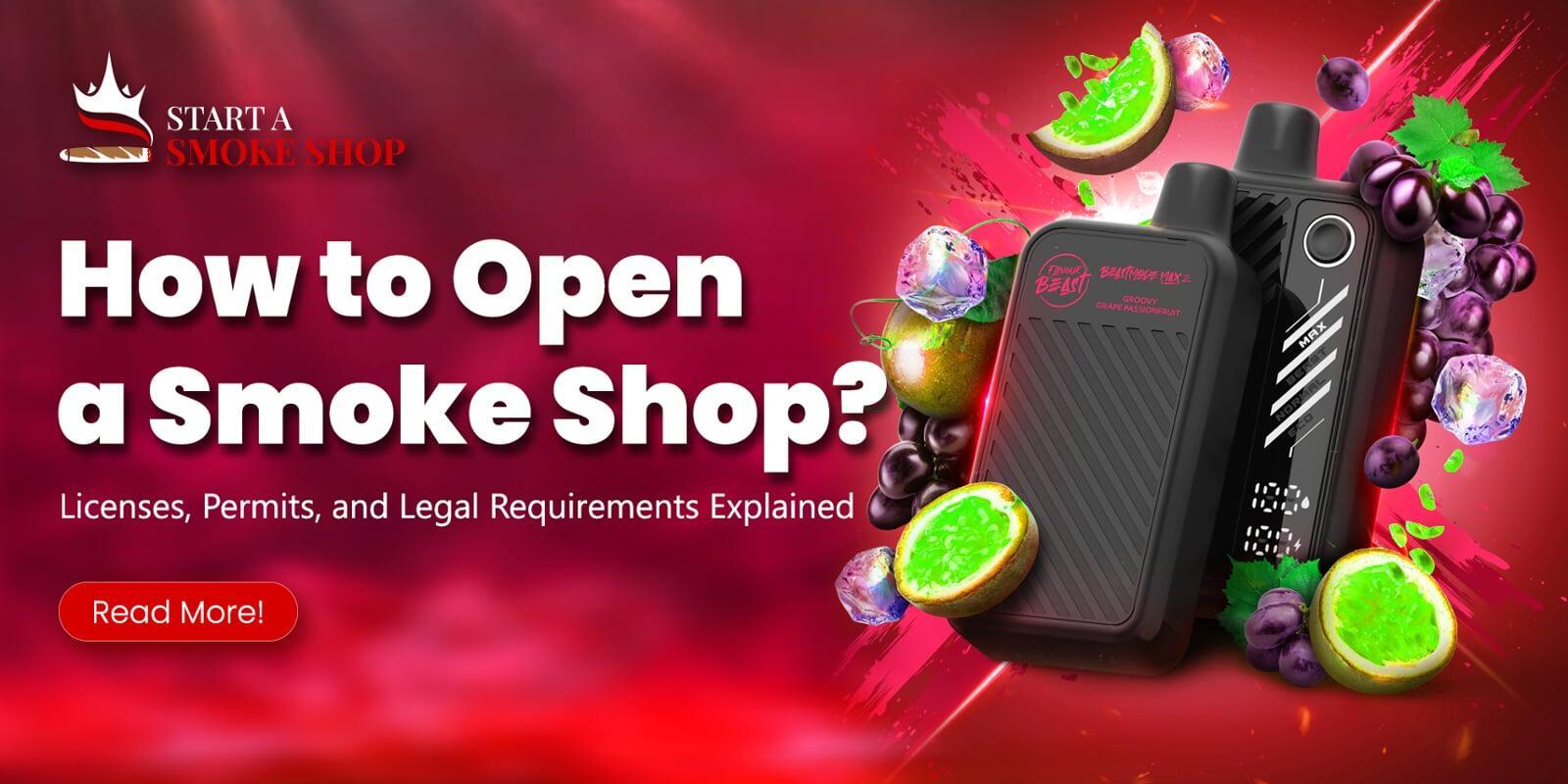
How to Open a Smoke Shop: Licenses, Permits, and Legal Requirements Explained
Opening a smoke shop can be an exciting and profitable venture — but it’s important to understand the legal groundwork required to operate safely and successfully. From state permits to federal compliance, proper licensing is a key step you can’t afford to overlook.
At Start A Smoke Shop, we’re here to help you navigate the complex regulatory landscape. Whether you're just getting started or formalizing an existing business, this guide will walk you through the essential licenses, legal requirements, and compliance tips to ensure you're operating within the law — and with confidence.
1. Register Your Business
Before you can legally operate, you need to register your business with your state or local government.
Steps:
Choose your business structure (e.g., Sole Proprietorship, LLC, Corporation)
Register your business name (DBA – “Doing Business As”)
Apply for an Employer Identification Number (EIN) through the IRS (used for taxes and hiring)
2. Apply for a Tobacco Retail License
This is one of the most crucial licenses for a smoke shop.
What it Does:
Allows you to legally sell tobacco products, vapes, cigars, rolling papers, and more
Required by most state and local governments
Where to Get It:
Your state’s Department of Revenue, Health Department, or equivalent regulatory body
Some cities require additional municipal-level permits
3. Understand Federal Tobacco Regulations
While the FDA does not issue retail licenses, it does regulate the sale, labeling, and marketing of tobacco products.
Key Federal Requirements:
Do not sell to customers under 21
No self-service displays of tobacco/vape products
Labeling and packaging must meet FDA standards
4. Get a General Business License
Most cities or counties require a general business license to operate any retail store.
Why It Matters:
Legal proof of operation in your local area
Required for zoning and inspections
Helps avoid fines or closures
Check your city clerk’s office or local business licensing portal for requirements.
5. Check Zoning and Location Laws
Before signing a lease, make sure your smoke shop location is in a zoned area that permits tobacco retail.
Things to Check:
Distance from schools, parks, or churches (usually 500–1,000 feet minimum)
Approval from your city’s Planning or Zoning Board
Compliance with signage regulations
Some areas also restrict exterior advertising of smoking products.
6. Sales Tax Permit
If your state has a sales tax, you’ll need a sales tax permit (also known as a seller’s permit) to collect and submit taxes on each transaction.
Where to Apply:
Your state’s Department of Revenue or Taxation Office
7. Health and Safety Compliance
Depending on your inventory, local health departments may inspect your store to ensure safe handling and storage of:
Herbal blends
Hookah products
Edibles (if legal in your area)
8. Age Verification Systems
To avoid fines or license suspension, install proper age verification methods, such as:
ID scanning devices
Staff training protocols
Clearly posted signage
This helps prove compliance in case of sting operations or surprise inspections.
9. Optional: Tobacco Distributor License
If you plan to sell wholesale, import, or distribute tobacco/vape products, you may need a Tobacco Distributor or Manufacturer License, which requires more advanced paperwork and reporting.
10. Stay Updated and Stay Compliant
Tobacco and vape laws are evolving fast. It’s crucial to:
Subscribe to your state’s regulatory newsletters
Work with a legal advisor for compliance updates
Keep licenses renewed before expiration
Kick Off Your Smoke Shop Journey
Starting a smoke shop is more than stocking shelves — it’s about building a legally compliant foundation that allows your business to grow confidently. With the right licenses, knowledge, and preparation, you can avoid legal headaches and focus on serving your customers.
Reach out to our team anytime for guidance.
Disclaimer: The information provided is for educational purposes only. Always consult federal, state, and local regulations before starting a smoke shop to ensure full compliance with tobacco, vaping, and hemp product laws.